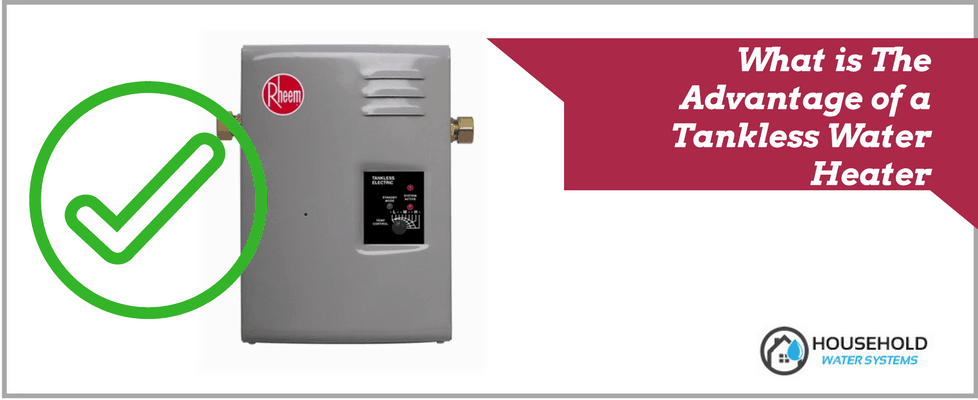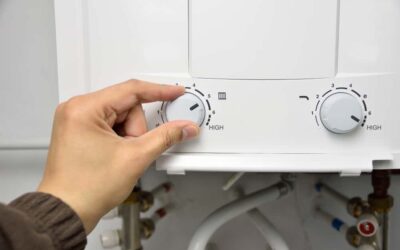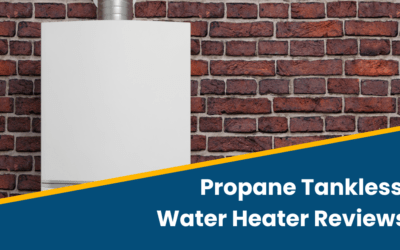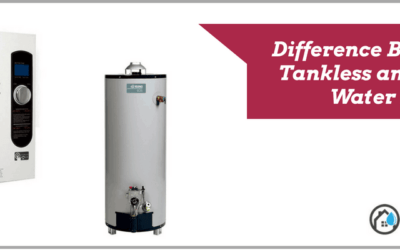As with most products you might purchase, a tankless water heater is going to have its own unique set of advantages and disadvantages. With more and more homeowners deciding to convert their homes to tankless water heaters, many people are wondering what all the fuss is about.
Let’s take a look at some of the advantages that tankless water heaters have to offer:
- Buying and installing a gas powered, tankless water heater will earn you a federal tax credit of $300.00. It may also qualify you for a variety of state tax incentives.
- A tankless heater will supply you with an endless stream of hot water. By comparison, a traditional water heater will only hold an average of 40 gallons of hot water. Once that hot water runs out, you must wait 30 minutes or longer for it to refill itself and reheat the water.
- The average lifespan of a storage water heater is 10 to 12 years. For a tankless water heater, the average lifespan is 15 to 22 years.
- Tankless models are more energy efficient, which is better for the environment, because they do not require energy to keep water heated. Consequently, there is no standby heat loss.
- Most modern tankless water heaters feature compact designs, which allow them to be installed in unusual locations, like a crawl space or an attic, so long as they are not exposed to the elements or inclement temperature changes.
- A tankless heater requires only enough power to heat the required amount of water at any given time.
- Having one of these units installed in your home can reduce your overall monthly energy bills by as much as 20% to 45%.
- Tankless water heaters powered by electricity do not produce greenhouse gases, which are known to be harmful to the environment.
- Most models feature precise temperature controls, allowing users to raise or lower the temperature of their hot water in one degree increments. Some models even boast convenient remote controls.
- Since tankless heaters do not have a water tank, they reduce the potential for home flooding, which often happens when a tank ruptures or rusts.
The Energy Factor
On average, a tankless water heater uses 25 to 50 percent less energy than a storage water heater, which can save the average family approximately $100.00 each year – depending on how much water they use. The tankless water heater (also commonly called an on-demand water heater) conserves energy by heating water only when a faucet is opened. Most tankless heaters are powered by propane or natural gas, but a smaller percentage use electricity. The primary advantage is that they eliminate the cost associated with maintaining 40 gallons of hot water in a holding tank, which reduces the amount of energy your home wastes. An on-demand water heater will provide you with an endless supply of hot water, which makes it an ideal method of filling a soaker tub or whirlpool.
The Downside
For all the benefits that tankless water heaters have to offer, they also have their downside.
The main issue that prevents many homeowners from investing in a tankless water heater is the sheer cost of purchasing and installing one. The upfront costs can be off-putting. Point of use (also known as on-demand) models usually cost around $500.00; however, a single POU model is generally sufficient only to serve one or two faucets at a time. For example, you could experience a shortage of hot water if you want to run the dishwasher and take a hot shower at the same time.
Thus, a homeowner is forced to either buy multiple POU models, or purchase a more expensive whole home model. Whole home models are more powerful than their point of use cousins, but they are significantly more expensive to run.
Because most tankless models feature high powered burners, special venting is required. For example, in most cases, installing a gas powered, whole home tankless water heater will require a sealed, dedicated venting system, which necessitates professional installation. Gas powered heaters also often require a properly sized gas pipe, which adds to your overall installation cost.
In Conclusion
Tankless water heaters certainly have a lot of advantages to offer, but before taking the plunge, make sure to get a firm estimate or bid on installation costs. Unless you are a licensed professional, this is not a job you should attempt to tackle on your own. Most manufacturers will not honor their warranties if a buyer attempts to do the installation themself. However, if you do decide to go the tankless route, know that your home, your energy costs, and the environment at large will thank you.







